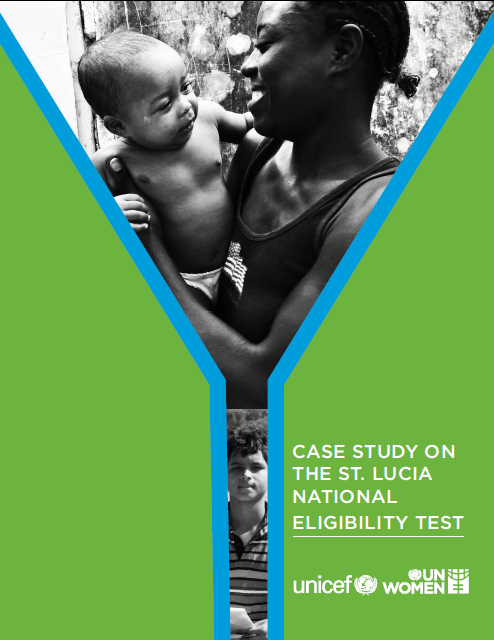
Case Study On The St. Lucia National Eligibility Test

Establishing gender and child responsive social protection schemes that ensure universal access to health care including maternity care, and basic income security, will protect women and their families from the effects of economic shocks and crises that may result in job and wage losses.
UN Women and UNICEF through the UN Joint Programme on Social Protection being implemented in the Eastern Caribbean, is contributing to policy and legal reform processes, and the strengthening of national capacities to establish transparent and evidence-based, targetted social safety net services to poor populations, while ensuring child and gender sensitivity.
One of the common recommendations across countries in the Eastern Caribbean region was that they should develop proxy means tests (PMTs) in order to improve targeting of poverty-oriented interventions.
In 2009, Saint Lucia, like other Eastern Caribbean states, underwent a social safety net assessment (SSNA). PMTs are among several internationally used targeting mechanisms, each of which has advantages and disadvantages. This paper focuses on the PMT methodology, as this was the approach decided on by the Government of Saint Lucia.
The purpose of this case study is therefore to highlight key considerations and measures to be taken within a PMT methodology so as to implement targeting that ensures that those who need assistance receive it. This case study highlights some aspects that are common to all PMTs and aspects that are specific to the SL-NET.